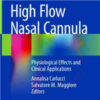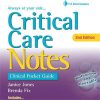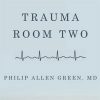Audiobooks As Good As The Old-fashioned Reading
amazon.com
With the rise of new technologies, long gone are the days of cassette tapes and CDs that made stopping, rewinding, learning, and restarting an audio recording an annoyance. Digital media now makes it possible for individuals to easily listen, read, or do both at the same time from their smartphones, e-readers, tablets, and computers. There is increasing interest in differences between listening versus reading comprehension or even doing both concurrently. For this study, 91 participants were randomly assigned to one of three groups that received the same instructional material (the preface and a chapter from a non-fiction book), but each in a different input modality (digital audiobook, e-text, dual modality).
After completing the material, participants took the same comprehension test in written form to establish both immediate comprehension (Time 1) and 2-week retention (Time 2). No statistically significant differences were found for any analyses pertaining to effects of the three different instructional conditions on comprehension at Time 1 or Time 2. Additional analyses showed that both males and females in each condition recalled an equal amount of information, regardless of whether they listened to an audiobook, read from an electronic tablet, or both listened and read simultaneously (dual modality).
Women outperform men on auditory episodic memory tasks and explained that the women’s superior auditory memory performance could be explained by their advantage in verbal ability. As such, gender differences may also contribute to inconsistency across studies.
There is considerable interest in potential effects on learning, especially verbal comprehension, based on input modality. As an increasing amount of information is becoming available electronically, especially for adults, there is a growing interest in whether there are differences between listening to audiobooks, podcasts, or webinars, as compared with reading the same material via e-text. The purpose of this study was to investigate empirically the effect of modality of input on verbal comprehension in native English-speaking college graduates.

















